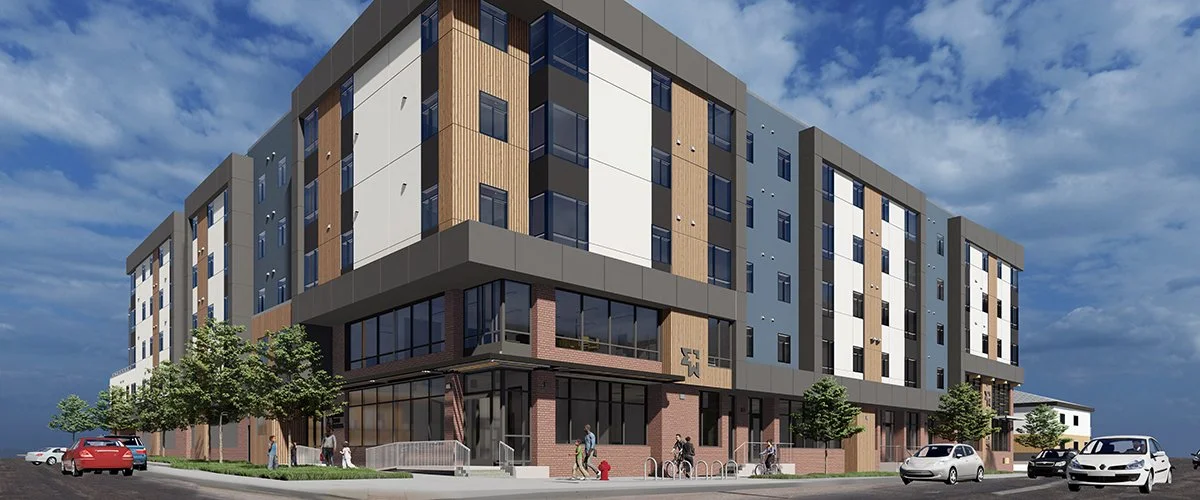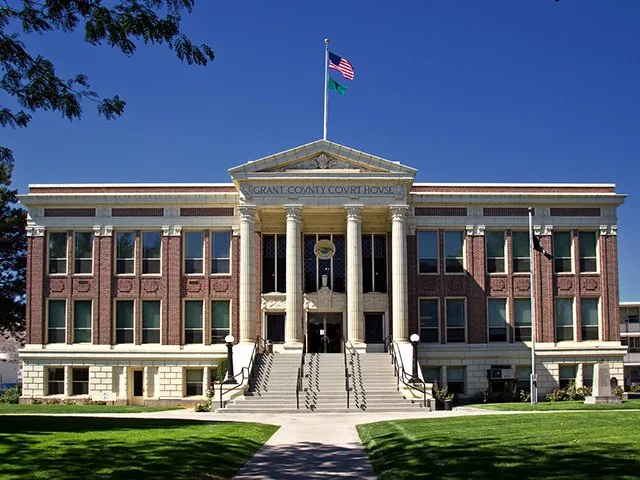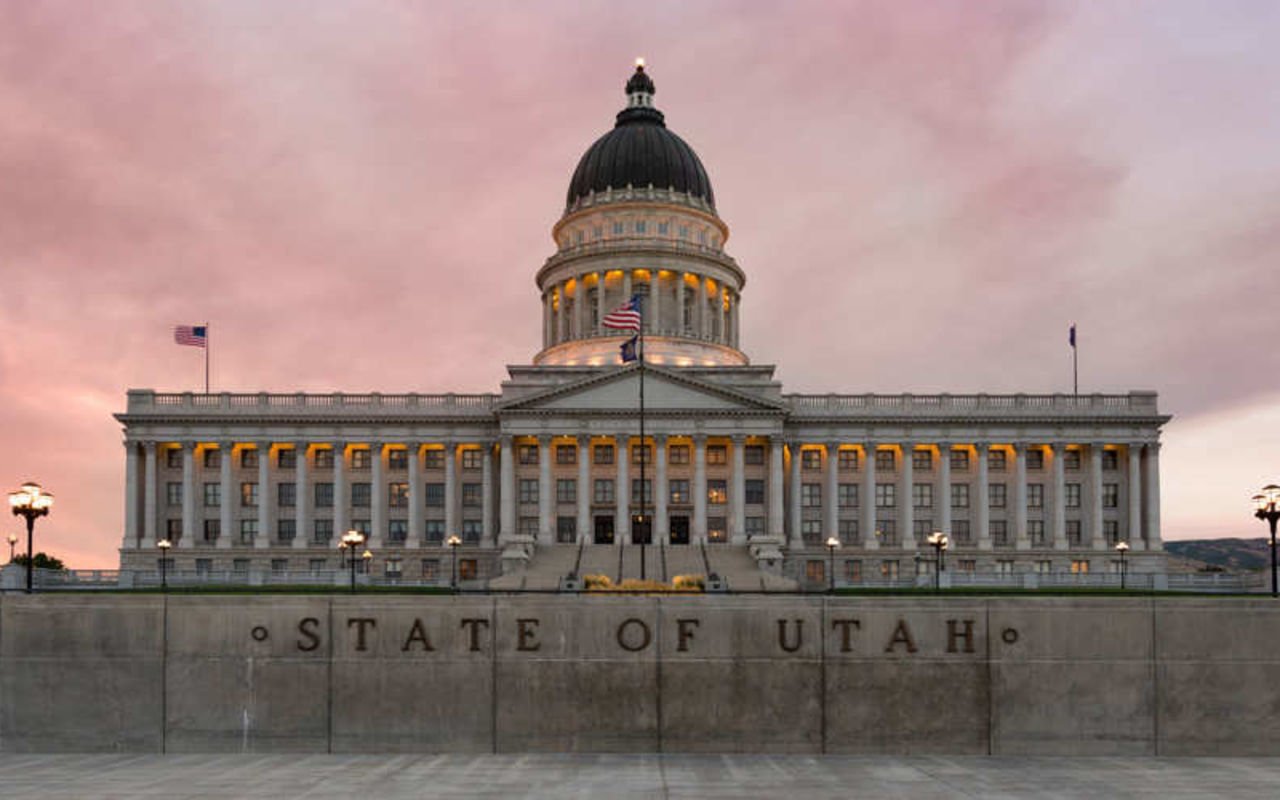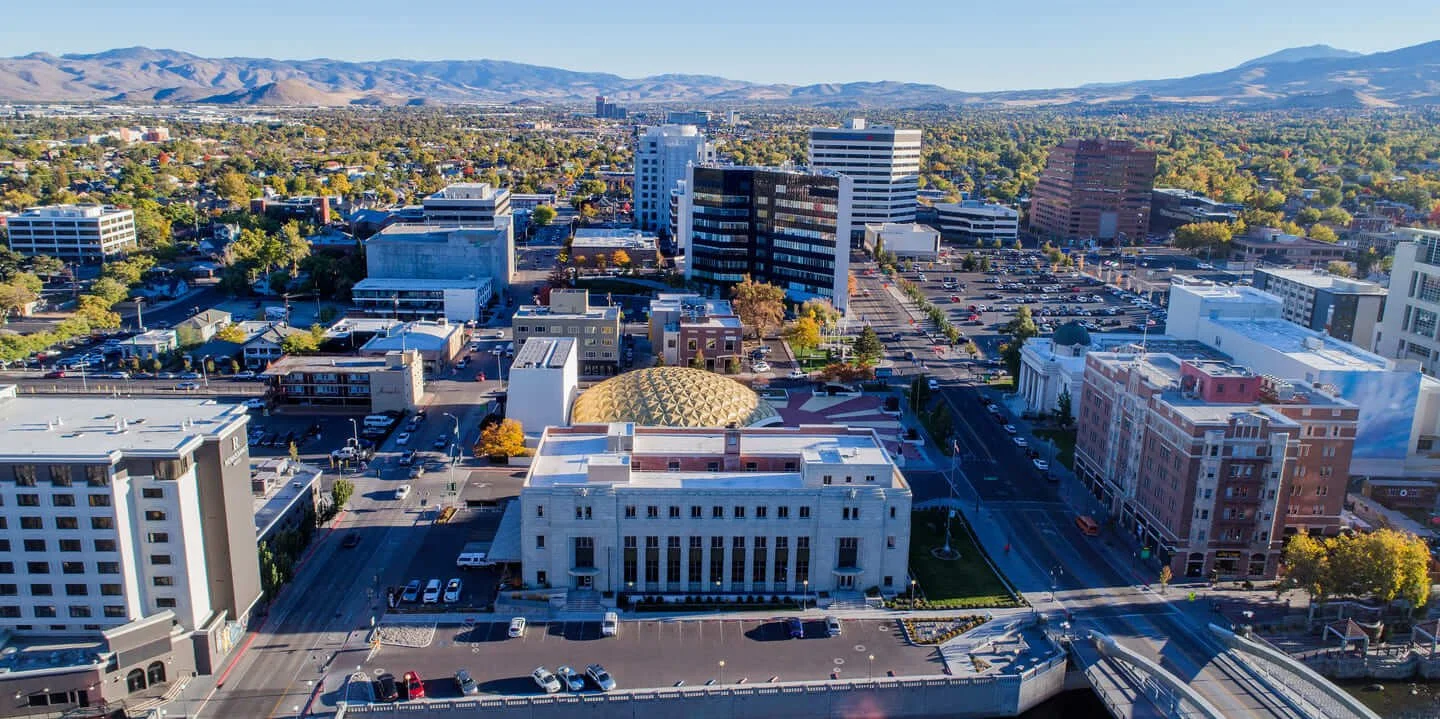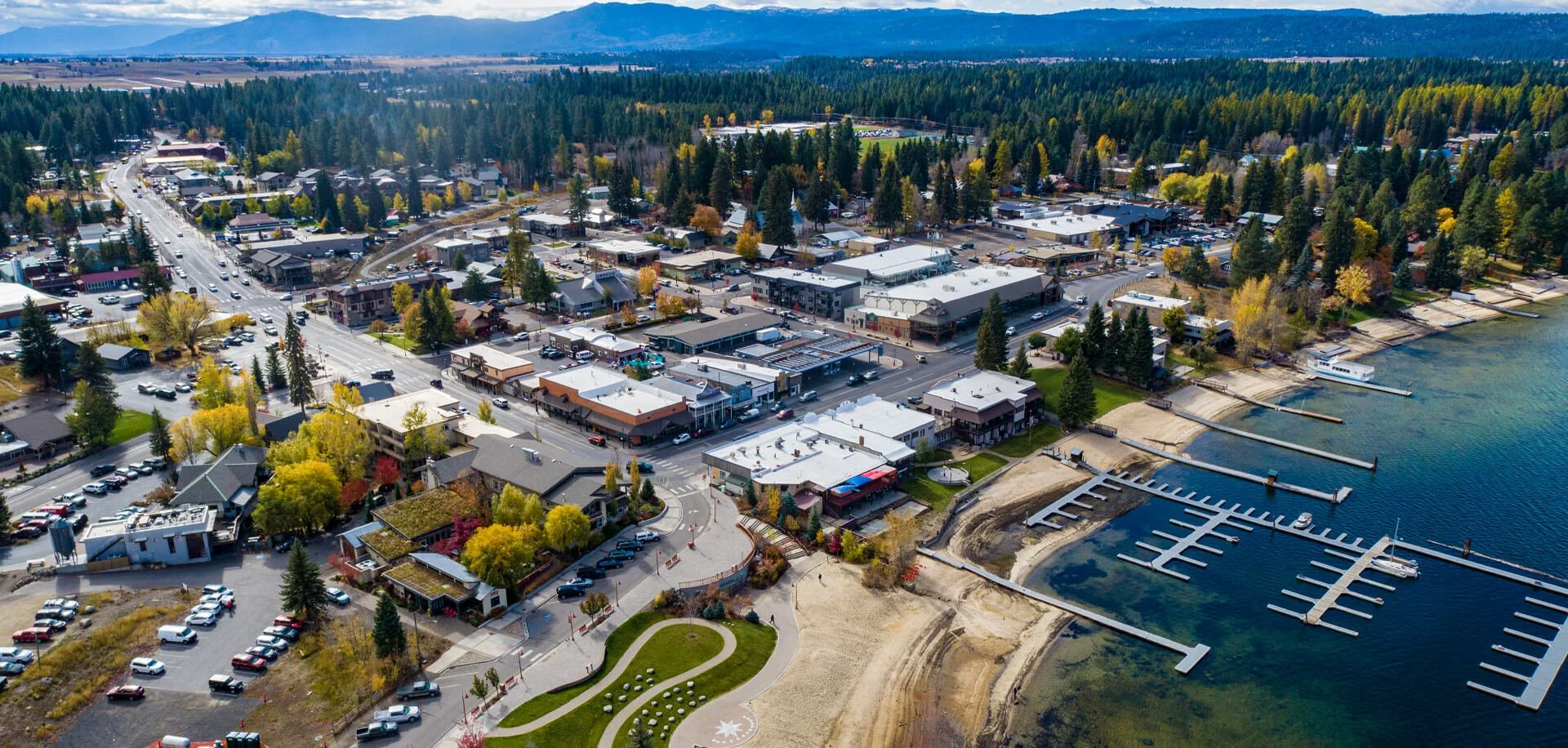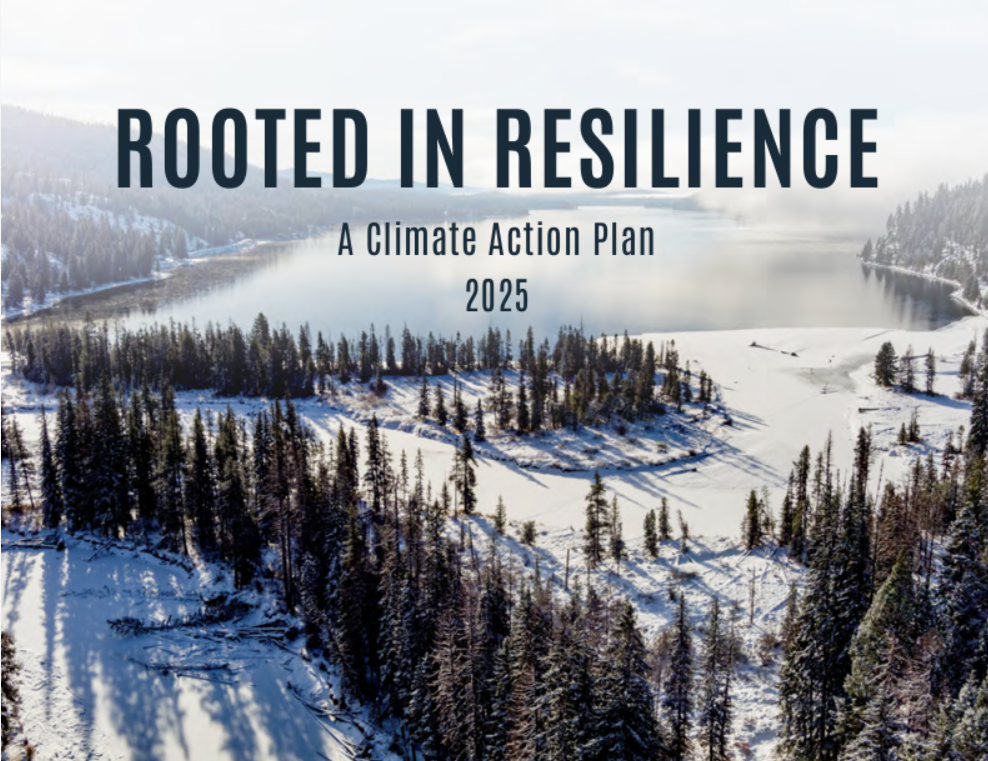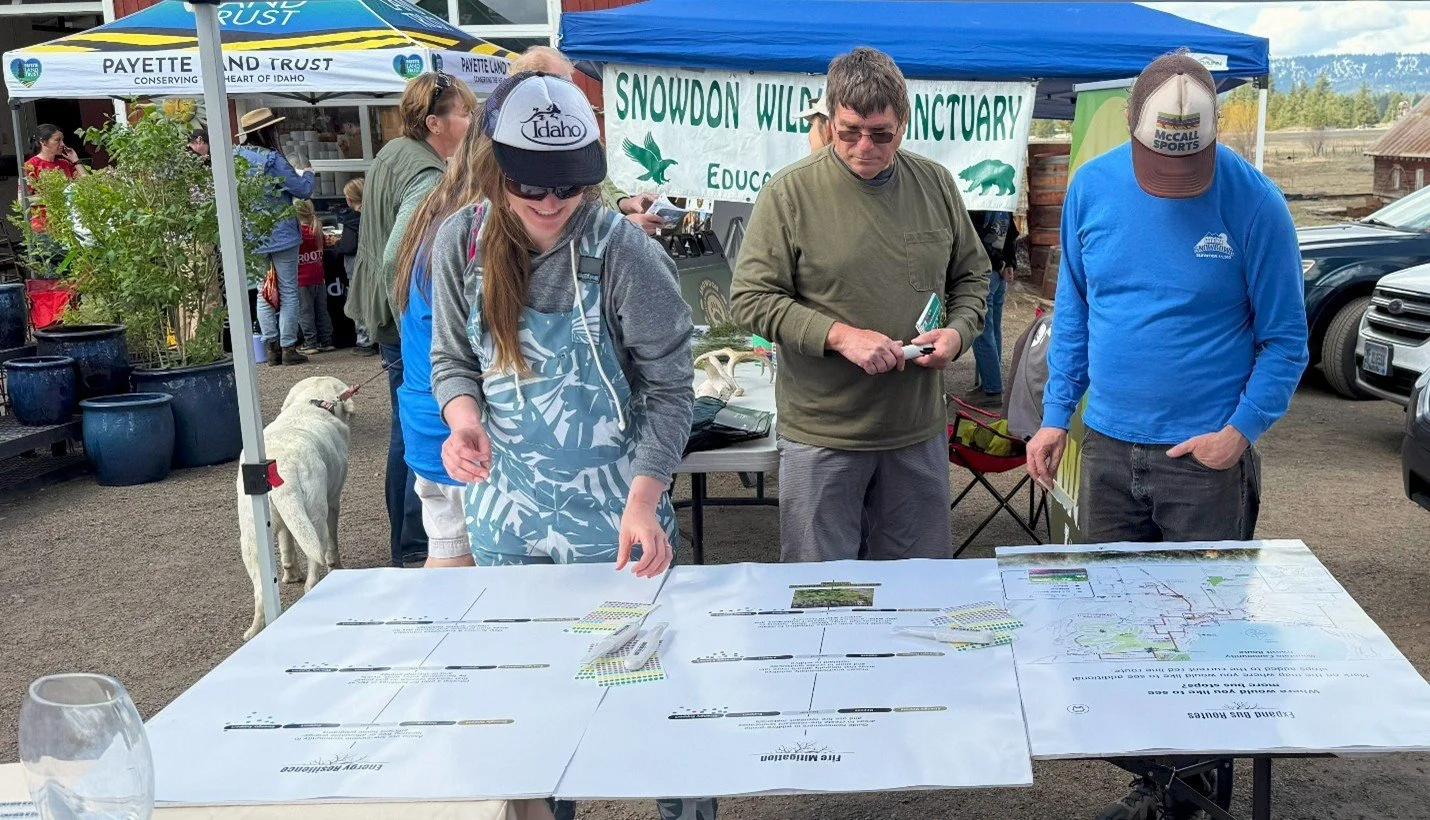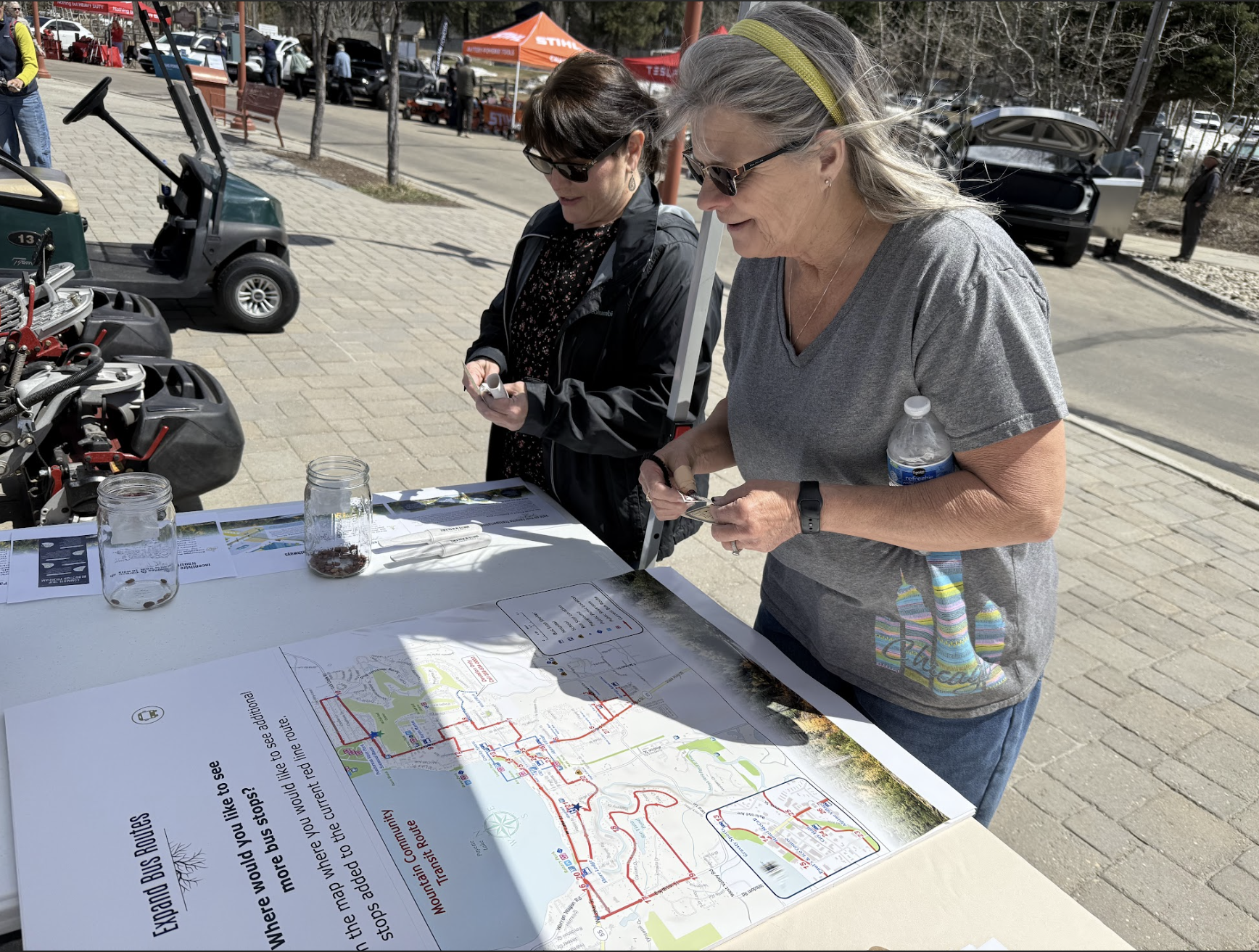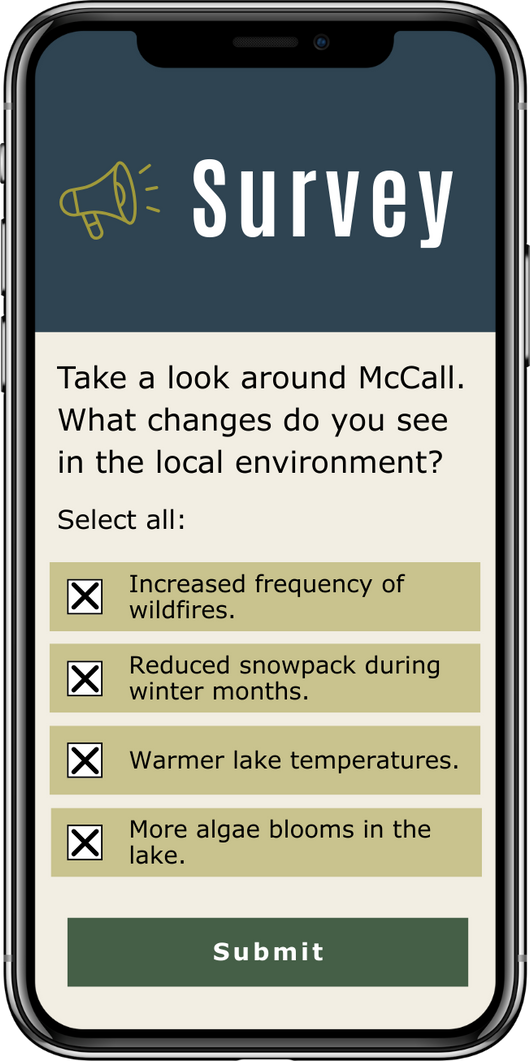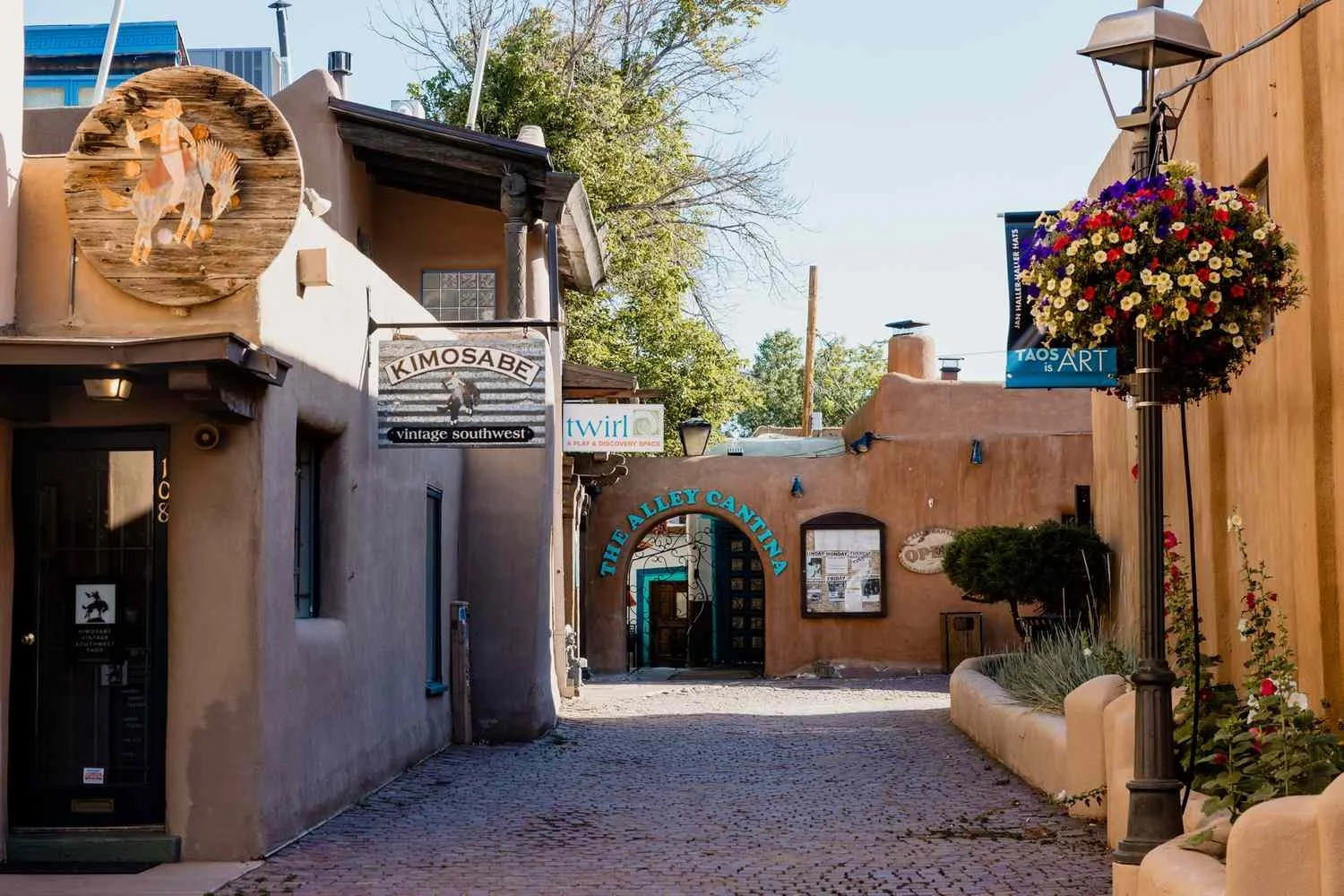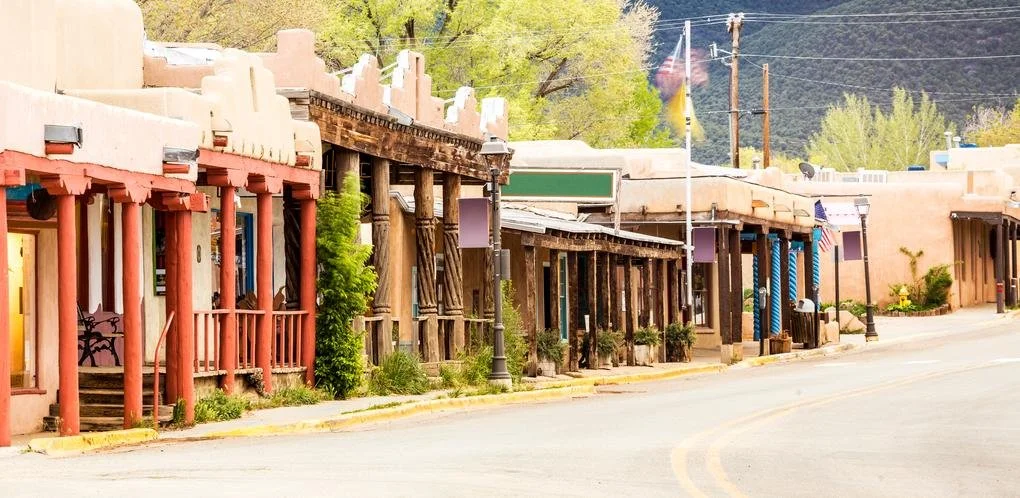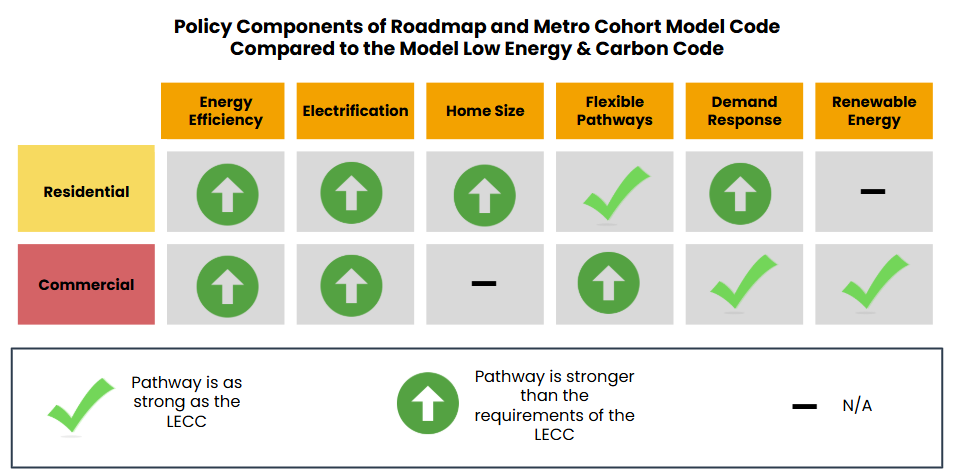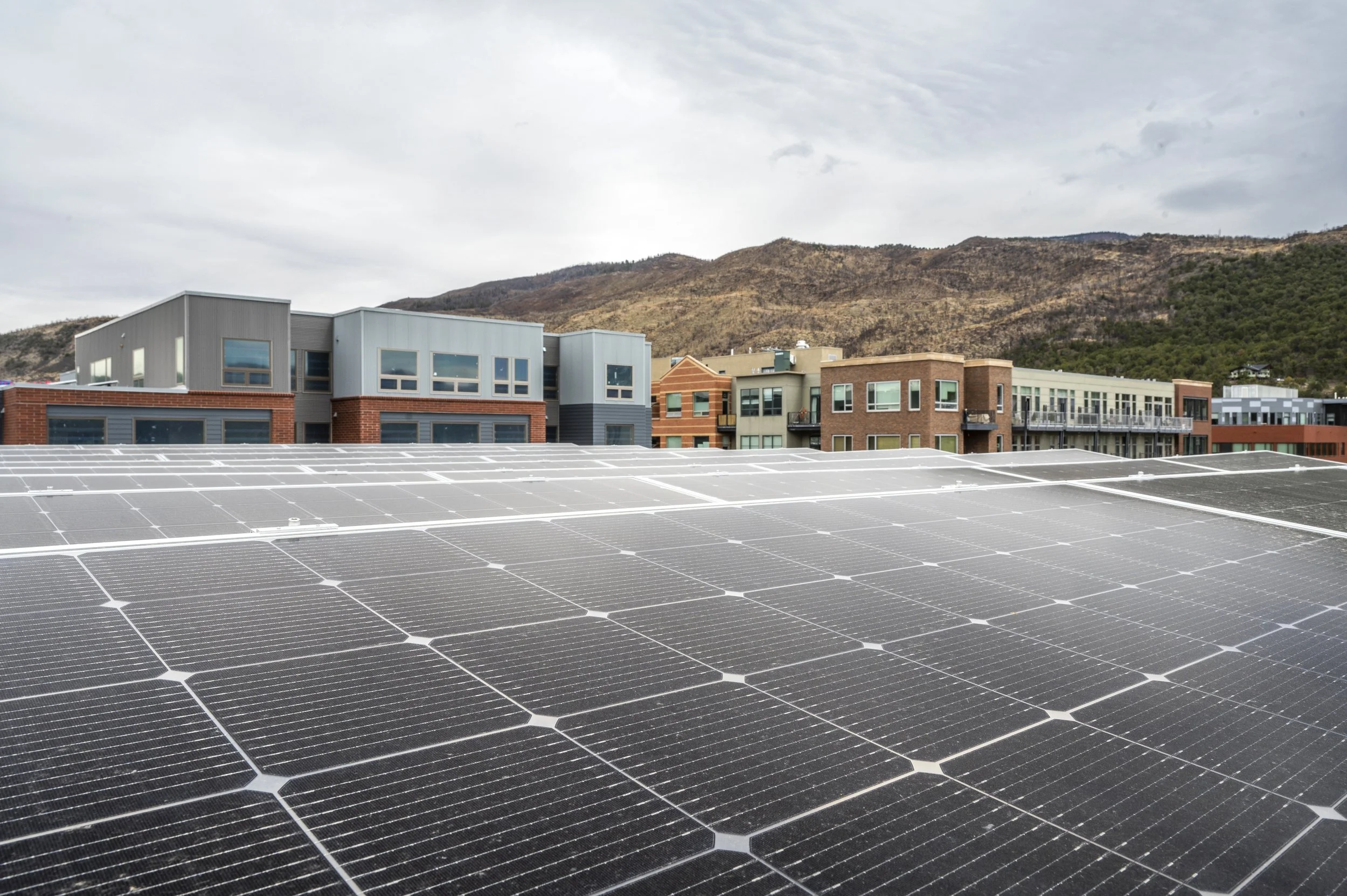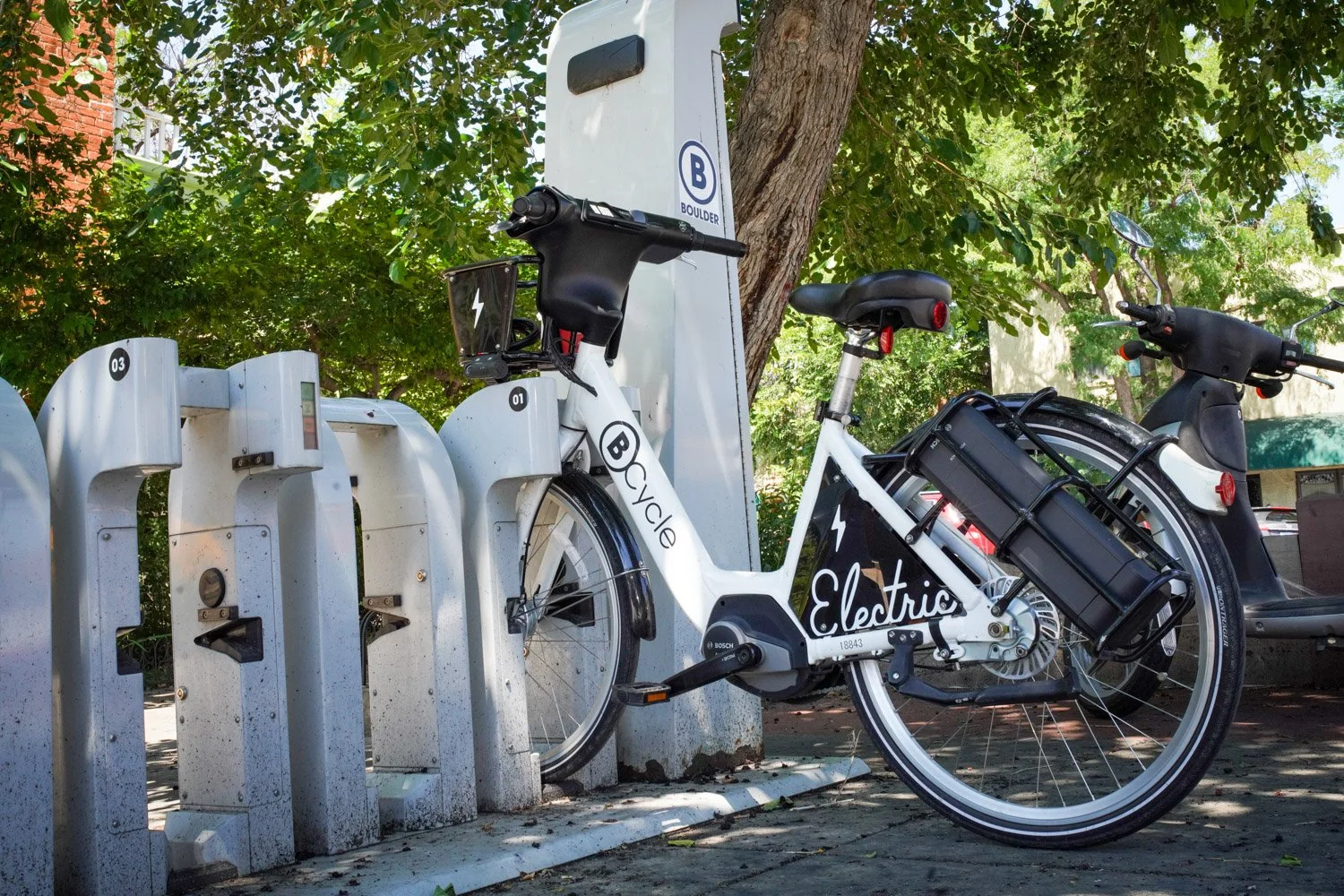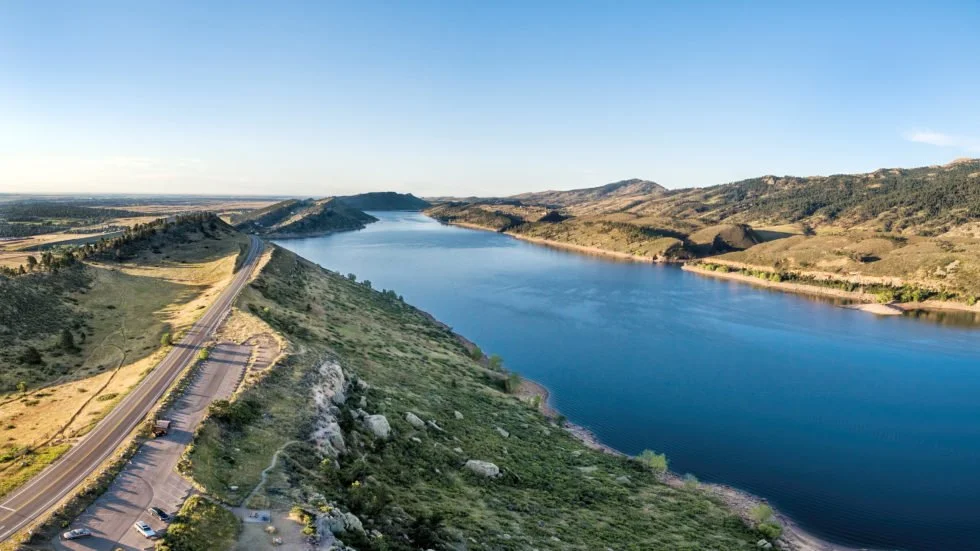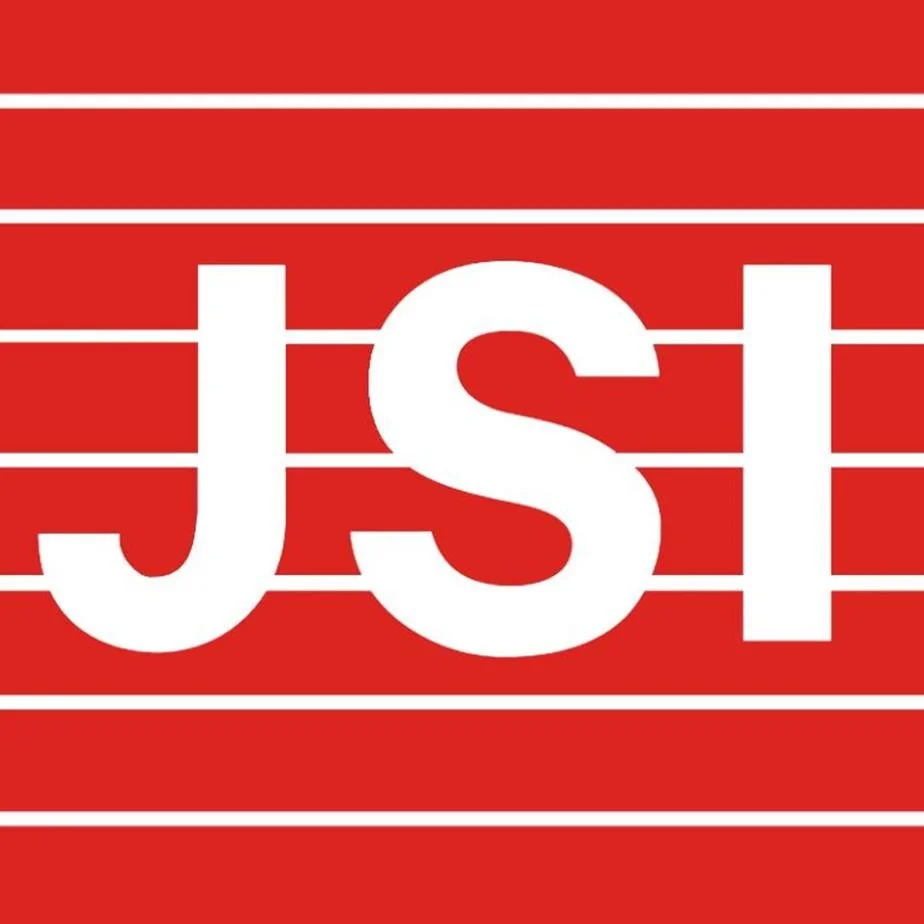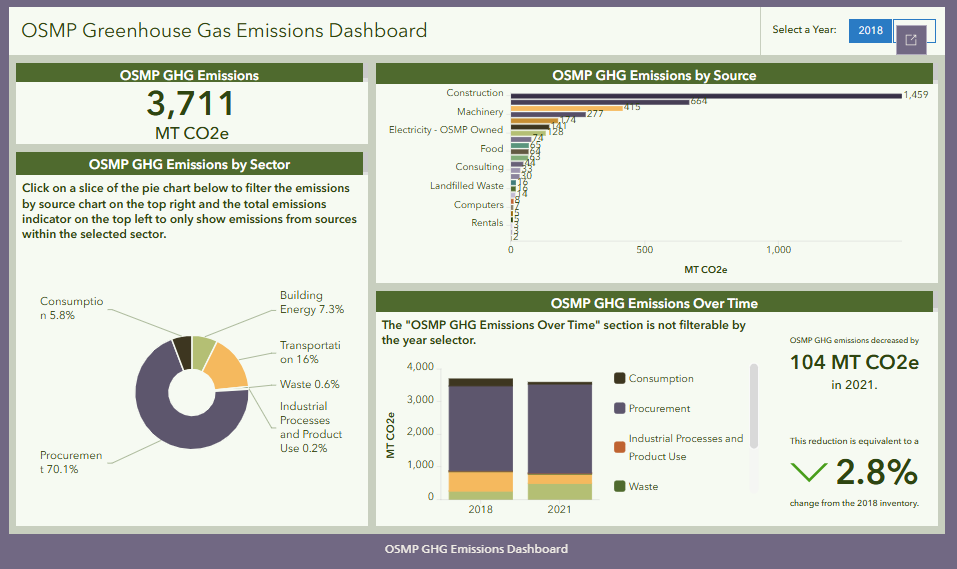City OF Fort Collins, Colorado | GHG Inventory Review
ghg Inventory review
Lotus worked with the City of Fort Collins to compare the 2022 community wide GHG inventory to the appropriate protocol(s). A review will include data as-is, with minimal source verification. Emission Factors will be verified according to the source listed. The inventory will also be thoroughly reviewed to ensure it is compliant with the industry-standard Global Protocol for Community-Scale Greenhouse Gas Emissions Inventories (GPC). Lotus will also develop a short memo with any necessary changes or updates that should be made, any major errors that were found, and any place where the inventory was found to be out of compliance with the GPC.
Denver Regional Council of Governments (DRCOG) | Building Policy Collaborative (BPC)
Facilitation of DRCOG’s Building Policy Collaborative (BPC)
Lotus is leading the facilitation of a region-wide collaborative of local governments to develop and implement a series of regionally consistent energy codes and policies to reduce carbon pollution from buildings in the Denver Metro Region. The project is a five- year grant funded effort, that will culminate in regionally adopted model codes and policies to advance climate goals. In partnership with DRCOG, Lotus is managing several work streams to coordinate the region’s local government staff to achieve these outcomes. The workstreams include facilitation of quarterly meetings with all 40 local governments, facilitation of a steering committee to provide equity and process oversight on the project, policy working groups to research, identify, and draft model policy language for the region, development of a regional visioning document that outlines the region’s goals for carbon-free buildings by 2050, management of key partner engagement across the region for the building industry and community-based organizations, as well as ongoing engagement and technical support for all the local governments to engage with elected officials on the efforts of the BPC, provide technical and subject-matter expertise to answer questions on policy adoption, and provide resources and support for policy adoption and implementation.
Mercy Community Capital | Sustainability Grant Program Development
Lotus worked with Mercy Community Capital (MCC), a Community Development Financial Institution (CDFI) that provides funding for affordable housing projects to develop a sustainability grant program. This program would allow funding recipients to receive small grants to enable the implementation of sustainable practices into affordable housing construction or retrofit projects. Lotus engaged with MCC and other similar organizations to understand where and how sustainability grant funding would be most effective. By leveraging MCC’s existing Salesforce and loan application systems Lotus created a full suite of grant guidelines, application questions, and a reporting and verification framework. This work will enable affordable housing projects to incorporate sustainable practices providing environmental benefits as well as energy or water cost savings for residents.
Grant County, Washington | Comprehensive Plan Climate Element
Lotus worked with Measure Meant to complete the climate element of Grant County’s Comprehensive Plan, a requirement for all Washington jurisdictions through the Growth Management Act. Lotus assisted with the development of a climate vulnerability assessment, an iterative process that included future climate projections, “at-risk” populations, and an assessment of probability and magnitude of consequence regarding climate-related hazards specific to Grant County.
The assessment was supplemented by an engagement process targeting the Hispanic/Latinx population given their large composition of the County’s population. Engagement activities included Climate Advisory Team meetings composed of government and community stakeholders, critical partner interviews with local municipalities in Grant County and community-based organizations, focus groups structured around five climate sub-topics, meetings-in-a-box (MIABs) for the public, a public survey, and tabling at the County’s Umani Festival. Key to the success of engagement was connecting with CBOs to gain actionable insights and community connections in a largely rural, agricultural community.
Utah Department of Environmental Quality, Division of Air Quality | CCAP Engagement
Lotus worked with the Utah Division of Air Quality under a larger consultant team led by E3 to craft the Beehive Emission Reduction Comprehensive Plan. Under the Comprehensive Plan scope of work, Lotus organized and led the stakeholder engagement, including the planning and facilitation of seven sectoral working group meetings, three sectoral focus groups, over 20 informational interviews, three community focused working group meetings, three meetings in a box, and two public meetings. These meetings collectively helped identify and prioritize key emissions reduction strategies, include detail and nuance in the final emissions model, and elevate community values in the Comprehensive Plan. A thorough report was developed to summarize the engagement results and synthesize critical insights from stakeholders. Strategy details collected from stakeholders throughout the process were included in a series of strategy coordination templates to assist with implementation.
Throughout the project, Lotus built relationships with key stakeholders in and around the emissions reduction space, as well as equity and justice stakeholders in the Salt Lake City area. Engagements were conducted largely in workplace contexts, with a few exceptions for in-person meetings and community focused meetings. Lotus deployed tactics to facilitate inclusive engagement and respond to cultural norms and needs authentically, such as providing refreshments, pivoting agendas to respond to community needs, and a variety of activities. Feedback from stakeholders was reflected in the final engagement report and strategy coordination templates, particularly in the community values that anchor the prioritization framework of the plan.
Nevada BPS | Building Performance Standard
Lotus partnered with Southwest Energy Efficiency Project (SWEEP) to facilitate a cohort of communities across northern and southern Nevada, aiming to advance the two regions towards implementing benchmarking and Building Performance Standard (BPS) policies, following the lead of Reno, NV, a City with a BPS program in place.
The facilitation included six meetings in which Lotus and SWEEP provided education on the technical aspects of benchmarking and BPS as well as key strategies for engaging stakeholders in the policy development and adoption processes. The technical policy topics included developing covered buildings lists, performance metrics and targets, data collection and reporting, compliance pathways, and enforcement strategies. Stakeholder engagement topics covered strategies for engaging with internal stakeholders, frameworks and approaches for external engagement, community-focused engagement, and strategies to engage elected officials.
The Cohort had varying levels of ambition regarding benchmarking and BPS adoption, so the project prioritized creating space for peer to peer collaboration while empowering each community to take meaningful steps forward in a way that aligned with their unique community.
City of McCall | Resilience Action Plan
Rooted in Resilience
Lotus led the development of the City of McCall, Idaho’s first Resilience Action Plan, a community-centered and community-driven Climate Action Plan. Lotus led the facilitation of in person and virtual engagements with community organizations and members, as well as city staff, City Council, and the Nez Perce tribe. In addition, Lotus created multiple Meetings-in-a-Box activities with all the necessary information and materials for non-city affiliated individuals or groups to engage different groups of the McCall population and meet them where they are. Lotus also reviewed McCall’s previous greenhouse gas emissions (GHG) inventory and updated the Business as Usual (BAU) projection to make data-backed recommendations and strategies. Lastly, the Lotus led the plan development and design process.
Town of Taos | Fractional sustainability Coordinator
Make it stand out
Lotus is supporting the Town of Taos as a fractional sustainability coordinator. Partnering with Lotus has provided the Town of Taos with a deep bench of subject matter experts for various sustainability initiatives. To date, Lotus has reviewed the town’s Investment Grade Audit, advised on a Water and Sewer Plan, and supported a Land Use Review Committee. Lotus has also analyzed the Town’s foundational planning documents (Comprehensive plan, Hazard Mitigation Plan, Taos Regional Water Plan, and more) to create integrated sustainability recommendations on strengthening climate action and resiliency within the town’s ongoing operations and initiatives.
The Lotus team will also deliver a sustainability framework in early 2026. The sustainability framework is designed to provide the Town with clear sustainability next steps and serve as the foundation for a sustainability plan. The project team is working to engage the community and key partners of the Town through a series of interviews and meetings-in-a-box to understand the nuances of Taos’ relationship to resilience and sustainability. The findings will be used to create a prioritization methodology by which the town can make quick decisions to address multiple competing priorities on limited resources.
The final deliverable of this scope of work is twofold. The first is a set of recommendations for planning processes to lead to more sustainable, resilient outcomes for the town through cross-sector collaboration. The second will lay the groundwork for a successful future planning process through the sustainability framework. Lotus never deploys a one-size-fits-all approach, and that has been especially helpful to Taos in staying flexible. Given Taos’ unique, complex social structure, remote location, and tourism-based economy, Lotus continually hones and adjusts the approach to meet the Town’s needs and ensure the work ladders up towards long-lasting sustainability.
Metropolitan Regional Building Policy Cohort
Roadmap to Zero Emissions New Construction and Metro Cohort Model Code
Colorado’s local governments are in a unique position to address their greatest source of carbon emissions: the built environment. In the Denver metropolitan region, buildings are responsible for 52% of regional greenhouse gas emissions and jurisdictions have set goals to reduce pollution from buildings to protect health and safety. Building energy codes in Colorado are adopted and enforced at the local level, usually based on International Energy Conservation Codes (IECC), but these are not sufficient to meet local and state goals intended to protect residents from the impacts of air pollution and climate change.
Roadmap to Zero Emissions New Construction
A Roadmap to Zero Emissions New Construction was developed in 2025 by a cohort of 15 jurisdictions in the Denver metropolitan region that recommends a phased approach to energy codes for new construction and major remodels to achieve zero emissions by 2030. By implementing these policies consistently across the region, we can standardize construction of healthy buildings that ensure no one — residents, businesses, tenants, and workforce — is left behind in the transition towards clean electric technologies.
Metro Cohort Model Code
The cohort is striving for regional consistency, and while jurisdictions are starting at various points along the pathway towards zero emissions new construction, they are increasingly converging towards all-electric or electric-preferred codes. A key point along the path is a code amendment package based on the 2024 IECC that exceeds Colorado’s Model Low Energy and Carbon Code in terms of emissions in several areas.
Additional Resources
Roadmap Appendix A: Collaborative Members and Background. Includes background on the cohort’s work in Phase 1 and Phase 2.
Roadmap Appendix B: Additional Code Elements. Includes additional policy mechanisms beyond energy codes, such as embodied carbon, waste, and water use, that jurisdictions can consider adopting.
Roadmap Fact Sheet. A three page, highly visual, executive summary of the Roadmap.
Cohort Amendment Package Fact Sheet. A two page easily digestible summary of the cohort amendments.
Metro Cohort Model Code (MCMC). Custom ICC Code, based on the 2024 International Energy Conservation Code.
Contact Info
The Roadmap and Metro Cohort Model Code are available for any community to customize and adopt. If you are interested in these or if you need access to any of the adoption support materials please get in touch with us!
Cohort Background
The cohort began in 2021 when a group of eight communities in the Denver metropolitan region convened to collaborate on adopting the 2021 IECC with supporting amendments that better prepare a building for future installations of rooftop solar, electric vehicles (EVs), electric appliances, and electric space and water heating systems. A regional code amendment package was developed and adopted by most of the eight communities with support from Lotus, the Southwest Energy Efficiency Project, and Shums Coda Associates. This work was funded by a Department of Local Affairs grant and created a framework in the state for regional collaboration on building codes which has been deployed in other areas of Colorado.
Phase 2 of the project began in 2022 with an expanded cohort of ten communities with a goal of creating a roadmap of ranked local, achievable, affordable, and equitable policies and strategies to reach the goal of net zero new construction by 2030 for the region. The roadmap was written and designed by Lotus, with support from SWEEP and Shums Coda. This roadmap laid a foundation for the Roadmap to Zero Emissions New Construction.
A Regional Roadmap for a New Net Zero: Eagle River and Roaring Fork Valleys
Redefining Net Zero and Aligning New Construction Codes in the Eagle River and Roaring Fork Valleys
Lotus provided project management and facilitation for the Eagle County Code Cohort in two phases. The first phase was focused on engaging with jurisdictions within Eagle County to align on consistent above building code amendments. The second phase, expanded our regional scope and focused on developing a region-wide Net Zero Roadmap for building decarbonization with communities within Eagle, Pitkin, and Garfield counties.
Phase 1
Phase 1 of this project included facilitation of three meetings with representatives from each Eagle County jurisdiction to create a set of above code standards, including solar-readiness, EV-readiness, and electric-readiness, that jurisdictions could adopt alongside the 2021 International Energy Conservation Code (IECC). Energy affordability, GHG reductions, and the needs of individual communities were discussed within the cohort meetings, and the consensus was reached for the recommended code package.
The scope of work included code package development along with individualized community support to help each partner community with their code adoption process. Lotus worked with consultant partners SWEEP and Mozingo Code Group throughout the project to develop the code package for the region along with supporting materials such as fact sheets, customized presentations, training materials, and other individualized support requested by each community. Lotus and the consultant team attended council meetings and study sessions with staff to ensure the code package was understood and could be adopted by each leadership council. Finally, Lotus facilitated a public engagement process for the new code package which included an informational webinar and community survey to understand community concerns and support for the new code package.
After completion of Phase 1, Lotus received positive feedback from participating local governments and the local workforce that this effort was successful and useful. This feedback inspired the regional partners to continue the collaboration to build a Roadmap to achieve net zero new construction by 2030—a shared Climate Action Plan goal of most of the Eagle County communities. Recognizing that Eagle County and neighboring communities like those in the Roaring Fork Valley share a workforce, the scope of the Cohort collaboration was expanded from Eagle County to include communities in the Roaring Fork Valley (in both Pitkin and Garfield Counties) that were interested in aligning on future energy code updates and a regional definition for net zero.
Phase 2
For Phase 2, Lotus convened a Cohort of building department and sustainability staff, sustainability and building code experts, and local utility company representatives from communities within the Roaring Fork and Eagle River Valleys through a series of collaborative meetings to develop a Net Zero New Construction Roadmap (Roadmap) for residential and commercial buildings. Lotus worked within the Cohort meetings and through individual community meetings to ensure the approaches outlined in the Roadmap met the needs of each community, and felt achievable for each staff team. The driving force for this work is to support the mountain regions in reducing and eliminating carbon emissions from new buildings to achieve climate goals, as well as strive towards a regionally-consistent building code that supports the local green building workforce as well as overall housing affordability and resiliency.
Phase 2 included the creation of a consensus-based Roadmap to net zero new construction, facilitation of key stakeholders in the region, and support of local government staff in adopting the Roadmap, which will guide the next six years of new construction code standards to achieve local climate goals. Lotus is currently working with each local government to adopt the Roadmap by resolution and apply for funding to support the ongoing implementation of the Roadmap from now until 2030.
A highlight of Phase 2 was our industry engagement. We hosted six regional Listen & Learn events with over 100 attendees that represented contractors, mechanical engineers, architects, home builders, utility representatives, energy efficiency service companies, building code officials, plan reviewers, and inspectors, and more. These sessions provided key insights that were passed along to the local government staff and presented to each council that shared a desire from the private sector to see regionally aligned building energy codes. Attendees also shared key insights into ongoing challenges for electrification and workforce availability. These insights proved invaluable during elected leadership discussions and provided elected officials confidence in their ability to adopt and implement the Roadmap in partnership with the building industry.
Colorado Public Utilities Commission
Impact Study of Investor Owned Utilities’ Tariffs, Policies, and Practices on Beneficial Electrification and Distributed Energy Resources
Lotus supported the Colorado Public Utilities Commission in conducting a thorough review of the State of Colorado’s Investor-Owned Utilities (IOU) electric utility tariffs, interconnection and line extension policies, programs, and cost allocation principles to determine if they pose any barriers to beneficial electrification and the implementation of distributed energy resources (DERs). The two IOUs evaluated were Xcel Energy and Black Hills Energy. The project involved data requests to the IOUs to better understand their tariffs, interconnection and line extension policies, programs, and cost allocation principles. In addition, Lotus facilitated several external stakeholder focus groups to learn from utility stakeholders how they perceive the programs, policies, tariffs, etc and posing barriers to electrification and the deployment of DERs. Following engagement with external stakeholders in both Xcel and Black Hills Energy territories, Lotus compiled a report summarizing the input they received on barriers and identified recommendations for the PUC to consider to help remove barriers for electrification and DERs in the utility service territory. As part of this project, Lotus also researched utility best practices for several of the identified barriers and presented these to the PUC in the final report.
Pitkin County, CO | GHG Inventories and Regional Summaries
County and Municipal-level Community-Wide GHG Inventories and Regional Summaries
Lotus developed 2019 and 2020 community GHG emissions inventories for Pitkin County, the City of Aspen, Snowmass Village, the Town of Basalt, and Unincorporated Pitkin County. In 2024, Lotus worked with Pitkin County again to update the County-wide greenhouse gas inventory as well as the Aspen municipal inventory. Lotus worked with CLEER to write summary reports with findings from the updated inventory. Lotus also completed a 2024 municipal GHG emissions inventory for Pitkin County, following the Local Government Operations Protocol. Lotus managed the data collection and workbook creation for the inventory. An inventory management plan detailing methodology was also created for the client. Lotus and Pitkin County are collaborating with ICLEI to pilot ICLEI’s ClearPath 2.0 software to help train the County on the software and to provide process and technical improvement feedback to ICLEI.
City and County of Denver | Refrigerants Impact Study
Refrigerants Impact Study
Lotus conducted detailed policy and emissions impacts analyses to better understand the impacts of increased refrigerant use in residential settings as a result of replacing fossil-based heating and the replacement of existing cooling systems or installation of new cooling systems. Lotus worked with the CASR team to identify potential scenarios of changing fossil fuel and heat pump technology for both existing and future residential buildings. Deliverables included a final model that could be adjusted to account for future changes, documentation of methods and assumptions, and a final report. The project was completed on-time and within budget.
City and County of Denver | E-Bike and Home Energy Rebate Program
E-Bike and Home Energy Rebate Program
Lotus contracted with Aptim and the City and County of Denver to conduct an impact analysis of the City’s e-bike and home energy rebate programs. Lotus conducted a series of stakeholder interviews to understand perspectives on program success, education, outreach strategies, and program challenges. Additionally, Lotus developed a series of surveys for each program targeted at program participants, rebate non-redeemers, and members of the community who had not engaged with the program. The purpose of these surveys was to identify key challenges, barriers, and opportunities from the programs. Lotus launched and analyzed the results of these surveys, developing digestible data visualizations that reported key findings. A slide deck was developed that included the survey results and maps tracking the spatial distribution of rebate program participation and key equity considerations. Finally, an impact summary report was developed highlighting findings from the interviews, surveys, and data analysis.
In 2024, Aptim contracted with Lotus to update the analysis completed in 2023. This update included developing a new series of maps tracking e-bike and home energy rebates using program data from 2023. Lotus developed a slide deck mapping rebate recipients by neighborhood, council district, and census tract. Maps showing the change in rebate recipients over time and maps overlaying rebate uptake with key equity data (language, income, heat vulnerability, etc.) were developed. Additionally, contractor participation in the e-bike and home energy rebate programs was mapped, highlighting areas with gaps in participation or contractors with limited participation. Finally, Lotus conducted a series of interviews with contractors identified as diverse suppliers. These interviews were conducted to understand any barriers or challenges that contractors face in the program and any opportunities to engage additional diverse suppliers.
Fort Collins, Colorado | One Water Facilitation
One Water Facilitation
Lotus has partnered with Fort Collins for two distinct projects with broad scope of engagement. The first project was for the Water Efficiency Plan Engagement and the Under-Resourced Buildings Engagement. For the former The City of Fort Collins partnered with Lotus to engage stakeholders during the development of the municipal utility’s Water Efficiency Plan. The purpose of engagement was to 1) understand which water conservation goals and strategies are most appropriate for the community and 2) understand the community’s needs and priorities, particularly those of equity-priority communities. The project team developed and executed a multifaceted engagement plan that included facilitating workshops with City staff, hiring community consultants to reach equity-priority communities, attending or creating community meetings and events, and developing a community-wide survey that was translated into Spanish.
In addition to utilizing a similar process outlined for Denver above, Lotus focused on engaging the pre-existing Climate Equity Committee, established from the City’s foundational climate action plan, Our Climate Future. The Committee agreed to hear from Utilities staff three times throughout the process and provided feedback on the engagement process. Lotus deployed this engagement best-practice to reduce the burden of participation on equity-priority communities, working instead with the set of citizens who had already agreed to serve the City.
Some of this group was tapped to provide feedback on an equity evaluation process to assess the strategies for their potential equity impacts that Lotus co-created. To create the evaluation, Lotus shared the draft process with eight community leaders and sought initial feedback to shape the final tool. Then, based on the feedback from these community leaders, Lotus updated the evaluation process to encourage the City to score the strategies in collaboration with community stakeholders. The Lotus team met with the Climate Equity Committee to score key Water Efficiency Plan strategies, per this best practice, to ensure the final analysis foregrounded the Fort Collins community’s priorities.
The equity evaluation methodology analyzes strategies based on the overall benefit to equity, assigning each strategy a score on a high-medium-low scale. The overall score estimates each strategy’s benefit to equity based on the assessment of potential impact on the five desired equity outcomes, including resilience and co-benefits, accessible participation, partnerships and investment, water burden, and community priority. These priorities were drawn directly from feedback from engagement, notably the informational interviews with community leaders and the community survey. A “high” score indicated the strategy had the potential to improve equity or serve equity-priority communities; a “low” score meant the strategy was unlikely to lead to better equity outcomes or does not serve equity-priority communities. This methodology is a pioneering example of a municipal utility’s efforts to incorporate equity into their strategic planning. In crafting the initial draft, Lotus could not find a similar evaluation process deployed elsewhere.
Town of Vail | Greenhouse Gas Inventory
Greenhouse gas inventory
Lotus worked with the Town of Vail to complete a 2023 greenhouse gas inventory for the community, as well as reconcile and update previous inventories to demonstrate progress on emission reductions. The 2023 inventory work was complemented by the development of a business-as-usual forecast of emissions. Using those combined data products, Lotus engaged Town staff to develop policies and strategies to model and estimate future emission reductions. Finally, Lotus provided support for Town staff to develop and update presentations and briefings for the Town Manager and Town Council.
JSI | Sustainability Plan
JSI | Sustainability Plan
Lotus partnered with JSI for a phased scope of work to support climate action initiatives for their eight offices in the United States. This internal Climate Action Program, will help JSI identify their carbon footprint, solidify their commitment to climate action, and clearly communicate their commitments to its funders (specifically government funding). It will also assist the client in proactively addressing risks (i.e., future regulations), ramping up a robust climate action strategy that was delayed by COVID, retain existing talent, and recruit new talent.
Lotus’s work will ultimately move JSI towards greater climate action in its United States operations over the coming years. Lotus recognizes that JSI has not developed or implemented an official sustainability program to date, but there is significant interest among the company in climate action. The scope of work includes focus groups with JSI administration, interviews with funders and partners, greenhouse gas inventory replete with an Inventory Management Plan, climate mitigation strategies, and implementation plan.
Boulder, Colorado | Open Space & Mountain Parks Department
Greenhouse gas inventories
Lotus worked with the OSMP department to create department-specific greenhouse gas emissions inventories, a business-as-usual GHG model, and a GHG reduction strategy model for 10 top strategies. In addition to the data work, Lotus also created a dashboard and storymap in ArcGIS online to communicate the results of the data work and to highlight the sustainability work that the department is undertaking. A final report was also written to provide more detail on results of the data work and to expand on the top GHG reduction strategies that were recommended to the department.
Trailhead Materials Embodied Carbon and Visitor Behavior Analysis
Lotus worked with the OSMP department to complete a two-phase analysis. The first phase analyzed the embodied carbon of frequently used materials at the department’s trailheads. Lotus also developed a matrix with metrics such as durability, resilience to fires and floods, and other qualities to help the department make well-informed decisions on material choices when doing maintenance and construction at trailheads. The second phase analyzed strategies that are available to help reduce the emissions associated with visitor travel and waste production. A matrix was developed that rates strategies on metrics including cost, greenhouse gas impact, success of implementation, etc. One strategy that OSMP implemented was to install cameras at high traffic trailheads in order to reduce the high amount of vehicular transportation emissions during trailhead commuting and prevent trail deterioration. Trailhead cameras allow the public to view parking space availability at trailheads ahead of time and plan accordingly.
The trailhead cameras are publicly available here.
“Lotus’ work was essential in creating an approach for Climate Ready Trailheads. Their work has helped us to reconsider how we design trailheads, how we get visitors to the trailhead, and how we maintain our trailheads and access points.”
Walking Mountains | Climate Action Plan Equity Analysis
Walking mountains science center
Lotus conducted an equity analysis of climate action strategies and programs across Eagle County, Colorado. We worked directly with Walking Mountains staff who conducted community engagement. Lotus then analyzed the results of a bilingual, online survey and two focus groups held in Spanish. The feedback collected resulted in the Climate Equity Plan with strategies that specifically address equity-priority communities in the county.
Clifton Sanitation District | Climate Action Plan
Clifton Sanitation district, CO
Clifton Sanitation District (CSD) contracted with Lotus Engineering and Sustainability, LLC (Lotus) to create its first greenhouse gas (GHG) inventory and Climate Action Plan. Lotus created the GHG inventory utilizing custom inventory analysis spreadsheet tools that are compliant with the Global Protocol for Community-Scale Greenhouse Gas Emission Inventories (GPC) and the Local Government Operations (LGO) Protocol. Once the team reviewed, analyzed, and leveraged the available data, Lotus conducted a quality assurance/quality control (QA/QC) on collected data to ensure that it aligned with best practices and industry knowledge.
CSD’s goal with this project was to complete a baseline GHG emission inventory to:
● Understand its climate action potential;
● Measure progress on sustainability investments and initiatives;
● Create an internal climate action report for board members and operational staff to use as a guide for implementation;
● Demonstrate which areas of CSD’s emissions have the most impact on the climate, and;
● Identify strategies to reduce these emissions.
The inventory results were then used to set targets for emissions reduction and mitigation strategies to meet the goal of a 50% reduction in emissions by 2030, mainly centered around energy efficiency.
This report integrates the GHG inventory data with emissions and reduction pathways. It includes identified GHG reduction goals that are science-based and time-bound along with a prioritized list of strategies that Clifton Sanitation District can take immediately.





